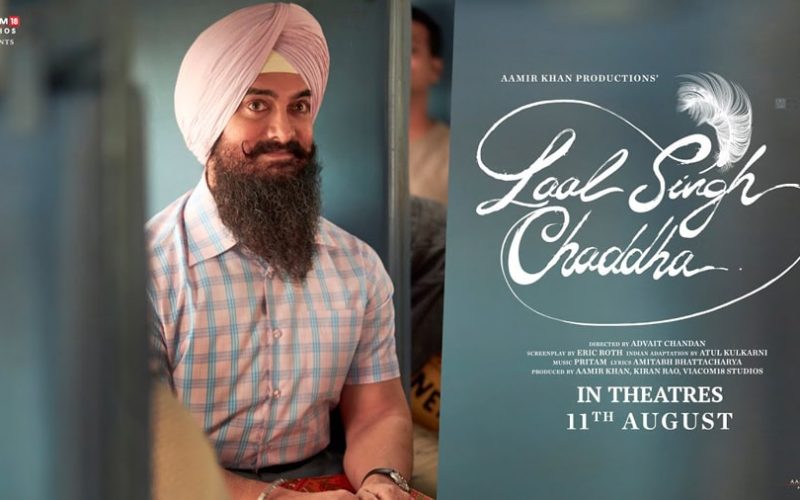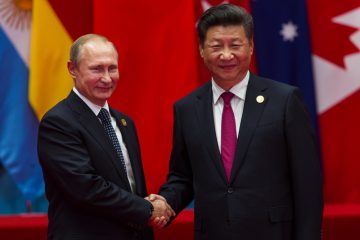Written by: Simran Saini
The influence that social media can have on the lives of the public is not unknown. We become targets of popular brands through ‘social media influencers’, and now it seems that we also have the tendency to be easily brainwashed by trending hashtags. The herd mentality has taken on a new face and its latest avatar is influencing people to #BoycottBollywood. But wait – let’s not be quick to judge, because the tables might just have turned around this time! What looks like a rival filmmaker’s gimmick could also be the public stirring a revolution.
The boycott trend is not a new episode. There have been a number of instances where the boycott-callers were successful enough to achieve their objectives. We all remember how the boycotters of Padmavati, after incessant attempts to ban the film altogether, were able to eventually cajole the filmmakers to change the film’s name to Padmavat. In south India, Kamal Hassan had to cut off some scenes from his film ‘Vishwaroopam’. But back then, incidents of boycotting were rare, and restricted to hardline fundamentalist groups. The public had little to do with these boycotts and watched the spectacle just like they would watch the film.
However, more recently, what we have started witnessing is an orchestrated attack on Bollywood which has mobilized people from different strata of the society, but with a shared belief system and a common agenda. What started with the boycott of Aamir Khan’s Laal Singh Chadha, quickly became a trend that targeted other films like Liger and Brahmastra which were to be released around the same time. Old statements from interviews were dug up, the actors of these films were dragged into the limelight and publicly shamed for their opinions, choices, and lifestyle. The public then took up arms against them, and within hours they were able to convince millions to boycott the upcoming film. It is true that the boycott calls have little to do with the content of the film, since the call is set up way before the actual release of the film, and is generally against the actor as an individual, his beliefs and behavior, and not against the script or originality of the film. Nevertheless, the fact that the audience is so easily propagandized, says something about the history and politics of Indian cinema vis-à-vis its audience.
It seems like the public doesn’t feel the need to go to the theatres anymore, for a yearly subscription to an OTT platform gives them access to thousands of films from around the world. The ever-growing educated urban and semi-urban population is not the audience of the ‘80s and the ‘90s who were enthralled by the charm of Bollywood, its catchy songs and the rise of the holy trinity that were the Khans (Salman, Shah Rukh and Aamir). This fairly large section of the Hindi-speaking audience of the late ‘10s and the early ‘20s is exposed to a wide variety of content from within the subcontinent and the global market. The popularity of easily streaming dubbed regional films like KGF, and the popularity of K drama is proof of the fact that the audience has no regrets in bidding adieu to their fancy old Bollywood which is barely able to rise above their internal debates on nepotism and is nothing but a remaking machine, delivering pirated versions of super hit South Indian films. The big Bollywood production houses should be more responsible about their final product. The boycott-callers are truly emboldened by the failure of ‘Lal Singh Chadda’. We all know that it failed because of Amir Khan’s incompetent portrayal of the main protagonist and a flawed, immature script when the target audience has already seen the masterpiece ‘Forrest Gump’. It is to be noted that the boycott call against ‘Dangal’ failed miserably simply because it is an excellent film.
The numerous OTT platforms have empowered the audience to become a fair judge of artistic talent, acting skills and filmmaking, by setting content from around the world on a platter and giving a fair chance to talented artists who were barely able to compete with Bollywood until the previous decade. This newly enlightened audience of the ‘20s will not consume whatever rubbish is served in the name of filmmaking. They have for long helped fill the pockets of filmmakers who serve the same story of a hero against a villain, with a dash of romance no matter what the genre of the film is. Not to forget, the entire set bursting into songs in the middle of the road, which the public has finally realized is far from the reality. Gone are also the days when it was okay to pursue the heroine and convince her till she gave in – for this is the kind of romance that films like RHTDM, Mohabbatein and so many others idealized. But this is surely not the kind of motivation that the youth of our country needs. There are way more urgent issues that need to be addressed on a nationwide platform like the cinema. Ergo, irrespective of the means of this boycott, if Bollywood is boycotted for the right reasons, it is indeed a win on the public’s part because it proves the fact that we are maturing as an audience and finally realizing and making use of our powers.
This trending hashtag is a wakeup call for all the actors and filmmakers who have for long exploited their consumers. The big Bollywood production houses need to be conscious about their productions, and not just throw in money. It is high time they start putting on their thinking caps and coming up with stories and subjects that can make a difference, rather than encouraging the youth to fall in love and pursue unknown women. So, if the #BoycottBollywood trend is here to stay and can end up reforming Bollywood for good, then we would surely be progressing towards a very bright future. And well, this also fills us with hope that the public will soon realize that they can turn things around in other spheres concerning the nation too!
About the author :
Simran Saini
French translator at an IT firm and Ph.D. candidate at Jawaharlal Nehru University, New Delhi




